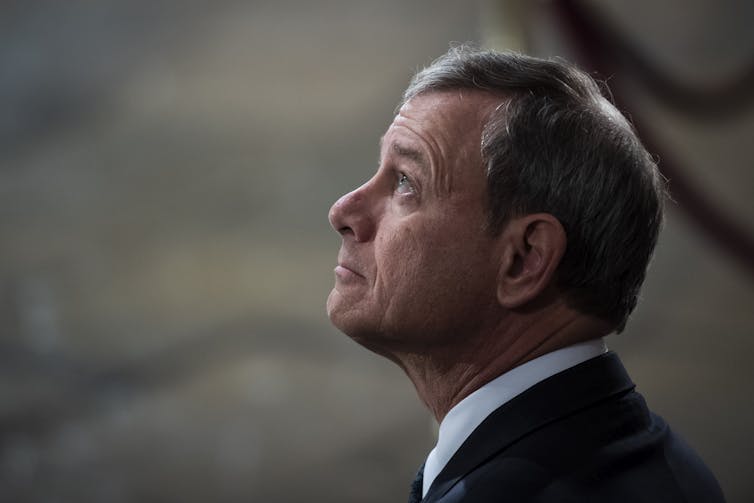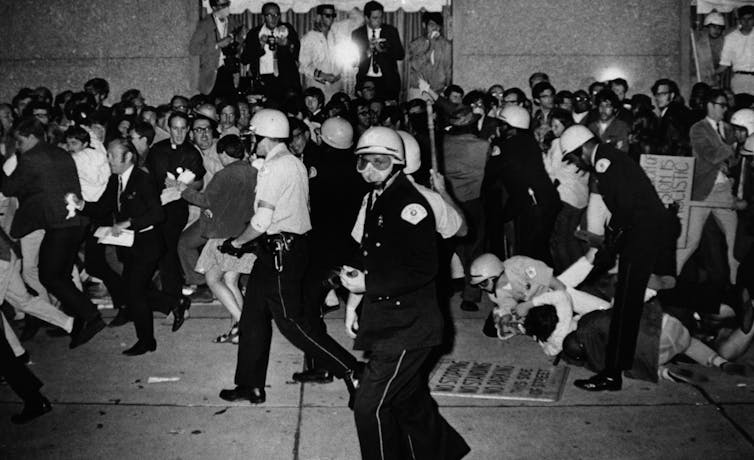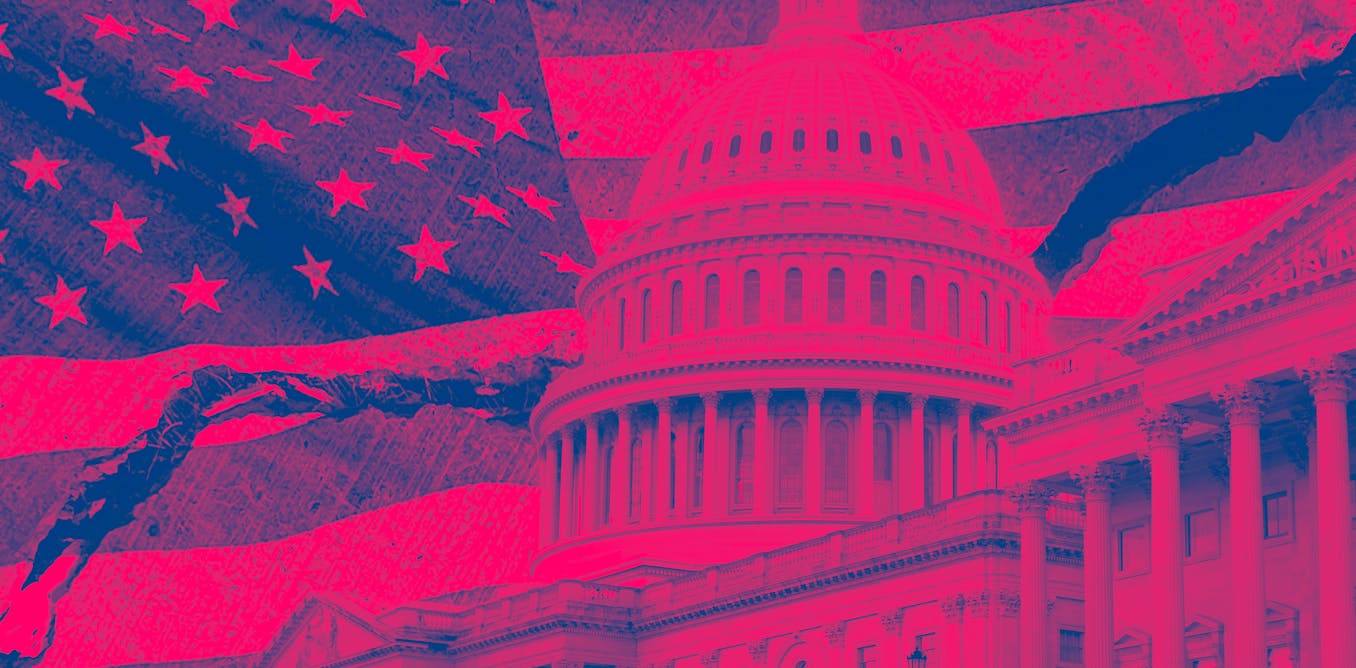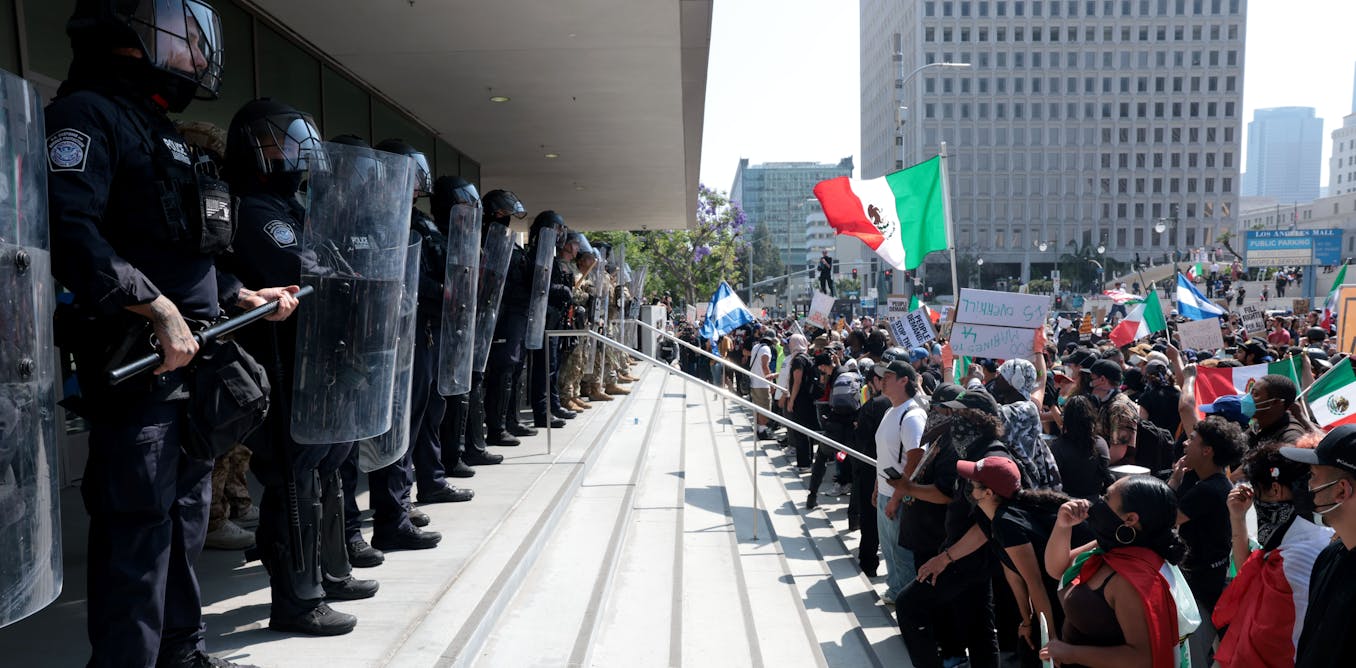Polarization is equally necessary to a operating democracy and a risk to it.
Too tiny disagreement amongst citizens and leaders is not likely to make the fruitful political debate that sales opportunities to superior plan and legislation. Too significantly dissension – particularly if groups form opposing camps shut off from one particular an additional – may well end result in violence and demolish democracy.
To borrow a quote from yet another time and context, polarization is “like the bubble in a carpenter’s stage.” If the bubble veers also far to either facet, something is askew.
On June 3, 2024, conservative Supreme Court Justices Samuel Alito and John Roberts, in conversations with documentary filmmaker and liberal activist Lauren Windsor, who surreptitiously recorded them, presented starkly distinctive views about wherever the polarization bubble sits in today’s The us.
Even though Windsor does most of the talking in her conversation with Alito, the justice does concur with her characterization of polarization as a acquire-get rid of phenomenon. For Alito, polarization is “very dangerous” since “there are variations on fundamental factors that really just cannot be compromised.”
While it is not stunning to listen to Alito’s conservative sights, his bluntness on polarization is placing. There is no chat of judges currently being like umpires, calling balls and strikes, as Chief Justice John Roberts put it in his 2005 Senate confirmation hearing.
In its place, Alito appears to be a justice keen to categorical his sights on the ideological divide in the country, and in agreeing with Windsor’s words, he’s seemingly all set to use his position to “return our state to a put of godliness.”
Roberts takes a different posture on polarization in these recordings. The main justice offers a extra optimistic look at of today’s politics by pointing to other intervals of fantastic conflict in U.S. record, including the Civil War, the New Deal and the Vietnam War. He asks Windsor for illustrations of a “non-tumultuous time.” To him, the present condition of affairs “is very little new.”
The divergent sights of the two justices may possibly very well be mirrored in the two their respective comprehension of the role of the Supreme Courtroom in American everyday living, as properly as in consequential decisions in which they played a decisive job.
Chip Somodevilla/Getty Pictures
Fearful or sanguine
Of training course, the conservative Alito is not alone in describing polarization in this sort of unsettling terms. A lot of on the still left agree with him. They concern for the future of American democracy, specially if Donald Trump wins the presidency yet again in November 2024.
For Alito, “one side or the other is likely to earn.” The chance for compromise is unlikely and, he suggests, may perhaps be unwelcome. Once again, several on the left agree.
In Roberts’ more favourable assertion to the filmmaker, he disagrees with her characterization that “polarization is so severe it may well be irreparable.” For him, “polarization that is extraordinary is like the Civil War … [and] all through Vietnam [when] persons were being acquiring killed.”
Is the Vietnam War era a truthful comparison to these days?
Surely, in some areas, there is larger polarization now than all through the late 1960s and early 1970s. Take into consideration, for case in point, get together-line voting in Congress.
For the duration of the late 1960s and early 1970s, it was not unusual for customers of both get-togethers to unite to go substantial legislation. The Clean up Air and Thoroughly clean Water acts are just two examples. When President Richard Nixon vetoed the latter in 1972, Congress overwhelmingly overrode Nixon’s veto mere hrs later. It did so with bipartisan guidance just months just before an election that Nixon would win in a landslide.
But I do not imagine Roberts was concentrating on the simplicity of enacting new regulations. In utilizing the word “killed” in referring to the Vietnam era in the estimate higher than, political violence seems to be front and center in his thoughts.
And below, Roberts is certainly correct.

Jabin Botsford – Pool/Getty Illustrations or photos
Assassinations, law enforcement brutality
The 1960s and 1970s were riddled with political violence. The most clear manifestations ended up the political assassinations. Leaders like President John F. Kennedy, Black nationalist Malcolm X, civil legal rights winner Martin Luther King Jr. and senator and presidential candidate Robert F. Kennedy – to list just a couple of – were being all murdered in the prime of their life.
John F. Kennedy and Robert F. Kennedy were 46 and 42, respectively. King and Malcolm X have been just 39. In 1972, an tried assassination ended the presidential campaign of George Wallace, the 52-year-outdated segregationist governor of Alabama.
There was political violence in the streets as nicely. Mass arrests and police brutality outlined the scenes from Chicago all through the Democratic Conference there in 1968. But that was just a single party.
In her 2022 ebook “America on Fireplace,” historian Elizabeth Hinton recasts what have previously been known as “urban riots” as “political rebellions.” She details that “between Might 1968 and December 1972, some 960 segregated Black communities across the United States witnessed 1,949 separate uprisings. … About these four several years, practically 40,000 folks were arrested, much more than 10,000 were being injured, and at least 220 persons had been killed.”
In his 2016 guide, “Days of Rage,” journalist Bryan Burrough examines the prevalent domestic bombings of the 1970s. Even though several of them resulted in fatalities, as he writes, “during an eighteen-month period in 1971 and 1972, the FBI claimed a lot more than 2,500 bombings on U.S. soil, almost 5 a day.”

AP Picture/Michael Boyer
A ‘rough and tumble,’ but enduring, democracy
Even though politics in the U.S. is characterised by deep polarization and bitter division now, it is not characterized by widespread and sustained political violence.
One party in unique stands out as a opposite instance. The Jan. 6, 2021, attack on the U.S. Capitol was an assault on the nation’s democracy with no a comparison. By no means just before experienced supporters of the defeated prospect threatened to overturn the election outcomes by violently storming the Capitol to prevent the certification of the election’s victor.
But although the activities of Jan. 6, 2021, shook the main of U.S. democracy, members of that mob have not escaped prosecution and punishment.. And, of program, Trump has been indicted for his initiatives to overturn the 2020 election.
In a pair of minutes of recorded dialogue, Roberts seemingly preferred his listener to fully grasp that America has confronted troubled moments prior to. Its democracy has been examined by division and discord and has come by more powerful in the conclusion.
Roberts indicates that we need to assume as considerably now, as perfectly.
The openness of democracy, as American historical past has revealed time and all over again, usually creates messy politics. Roberts’ see is unquestionably additional self-assured about the state of The united states right now than that of Alito.
But as a political scientist who incorporates historic evaluation in his operate, I imagine Roberts’ comparison of present-day U.S. politics to the politics of the 1960s and 1970s is an apt 1. Without a doubt, in a time when so a lot of have lifted deep problem about the danger of polarization, it is an important reminder of each the tough-and-tumble mother nature and the enduring electric power of American democracy.




